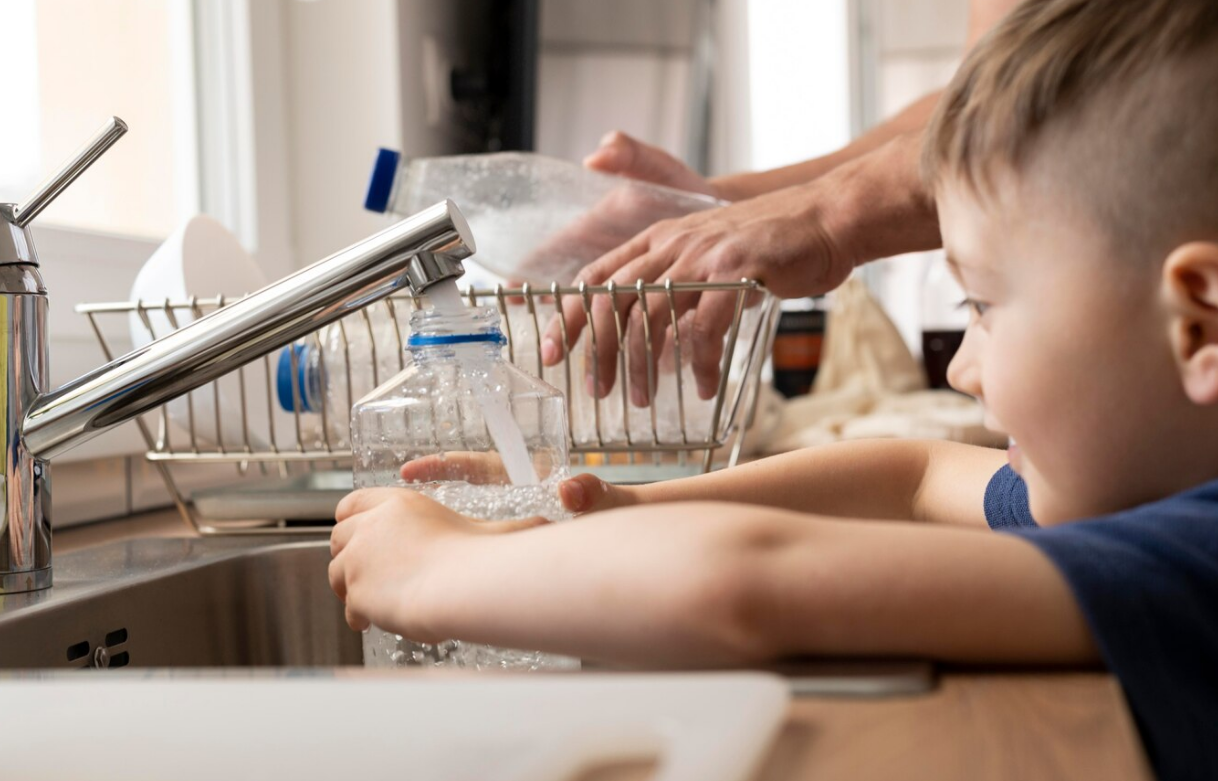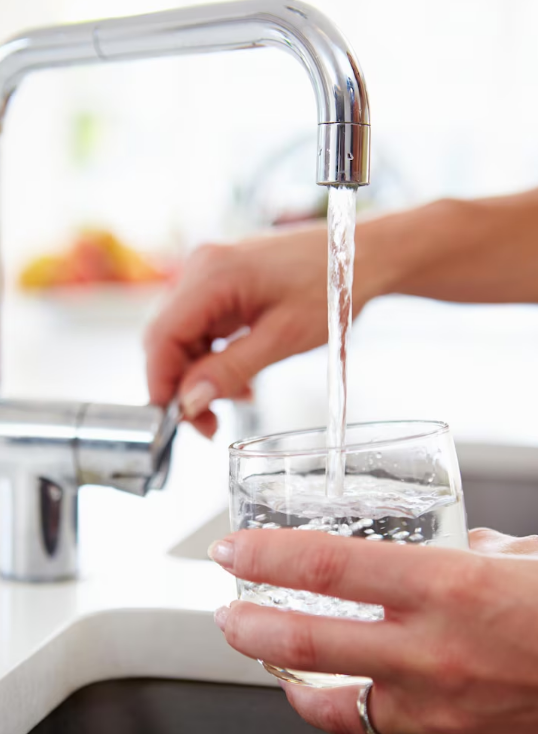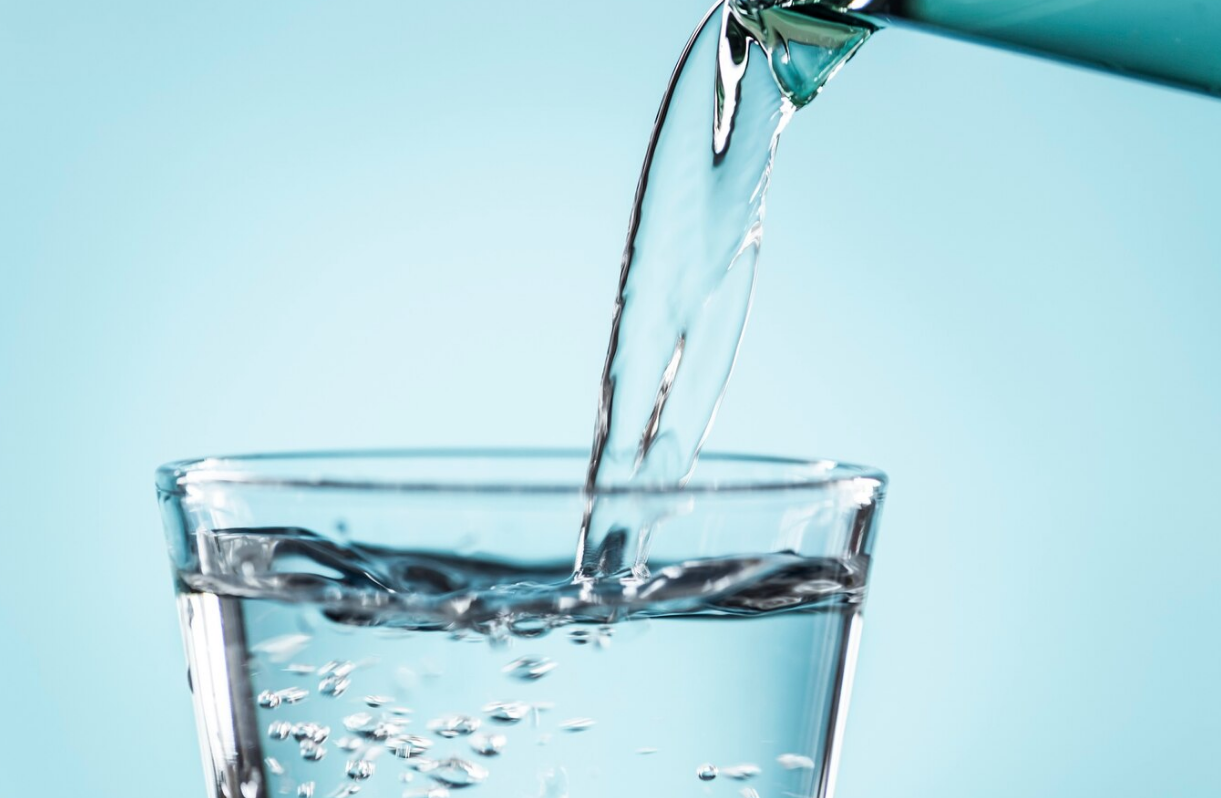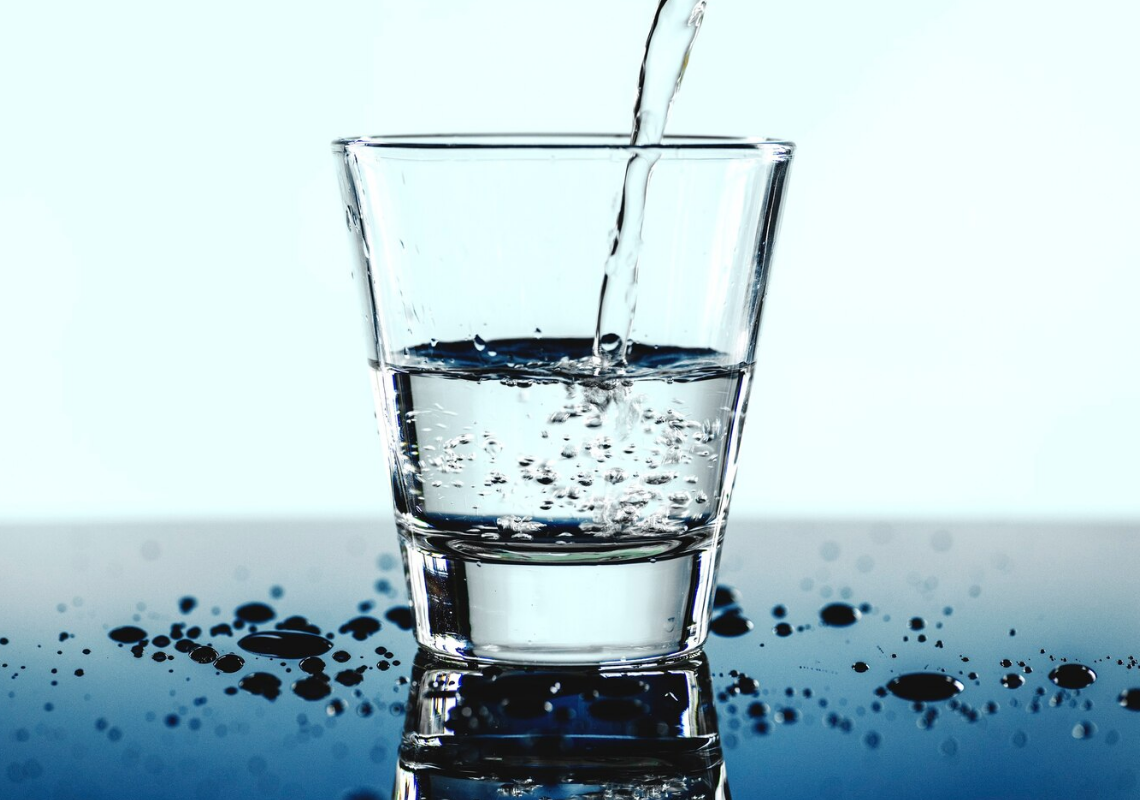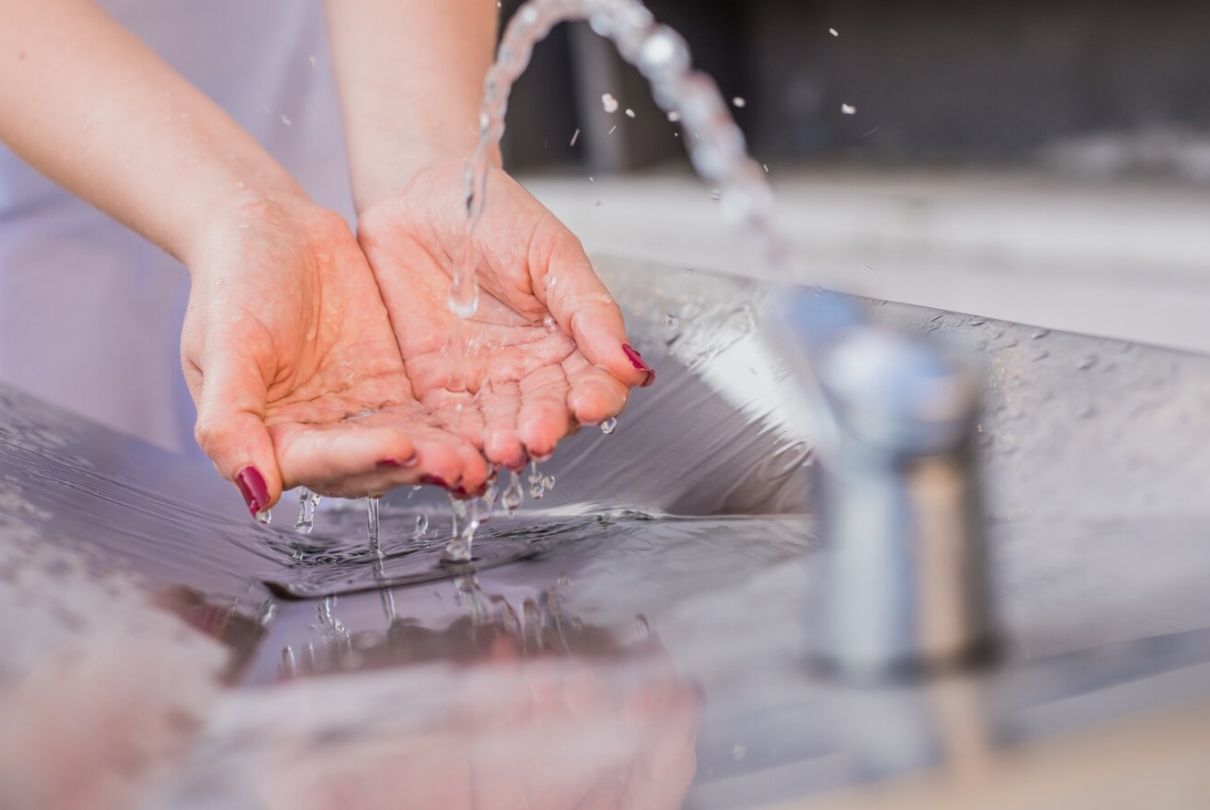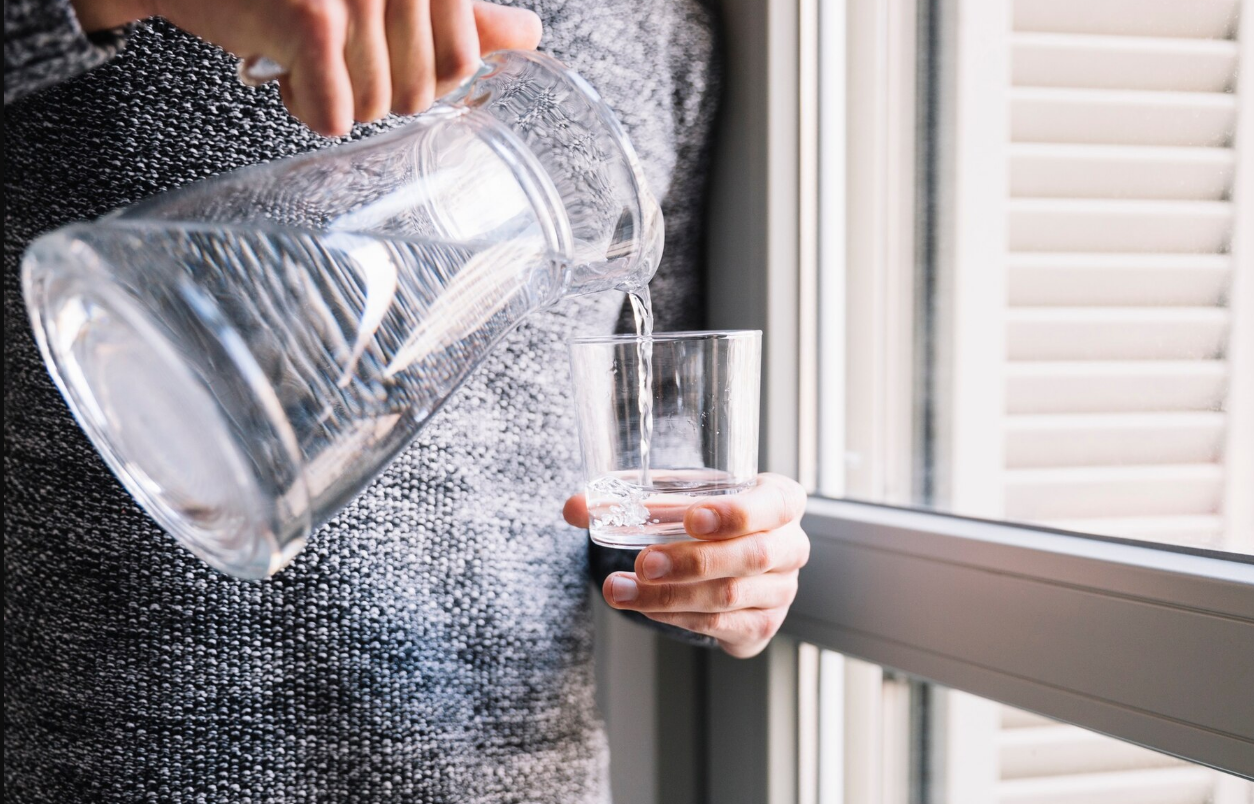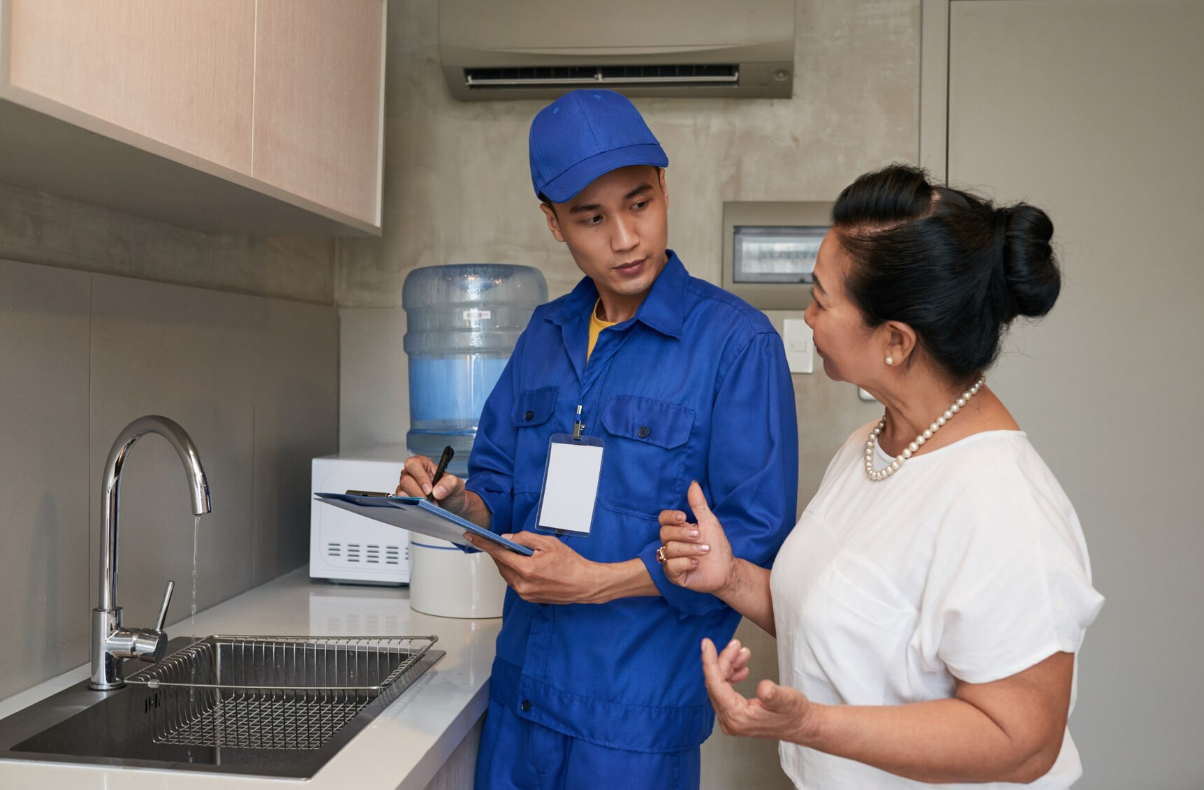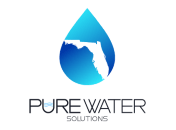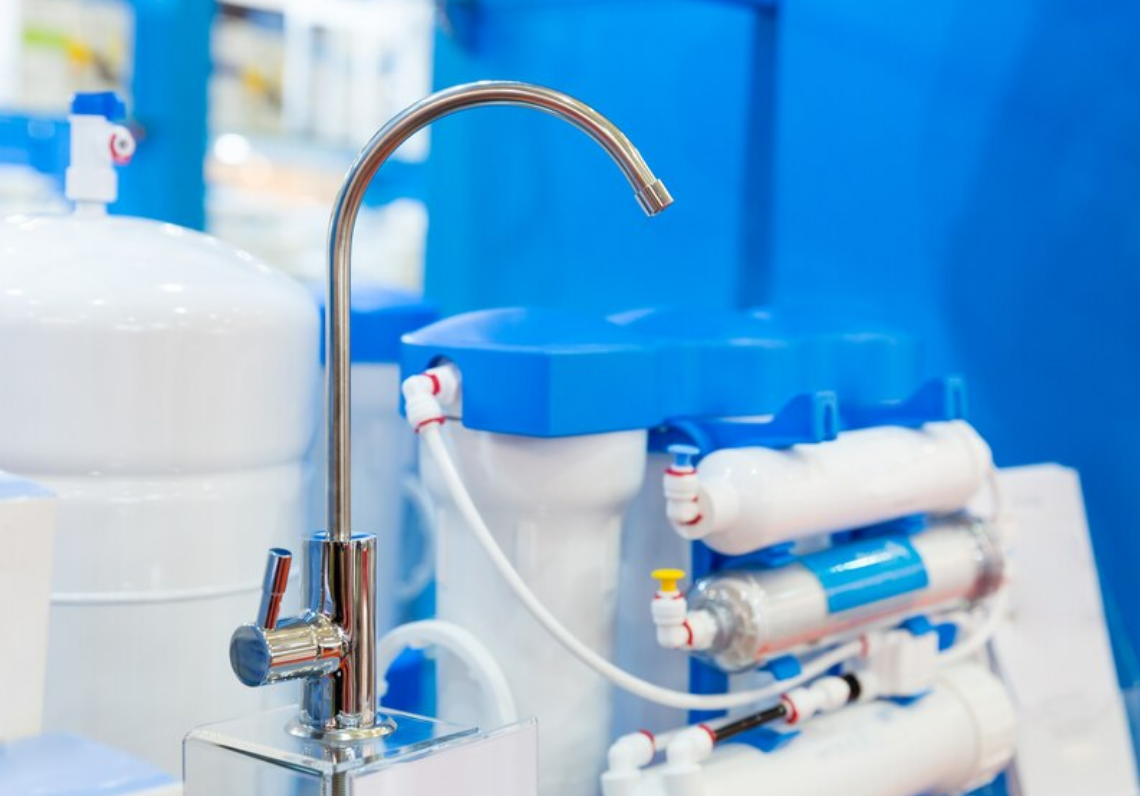How to Check Filtered Water at Home: Simple Tips & Tricks
How to Check Filtered Water at Home Simple Tips & Tricks

Checking filtered water at home is crucial to ensure that your filtration system is providing you with clean and safe water. Start by examining the water's clarity and taste—clear, fresh-tasting water indicates effective filtration. To test for contaminants, you can use home water test kits, which check for common issues such as chlorine, lead, and bacteria. If you notice any changes in water quality or suspect your filter is not performing as expected, it’s time to replace it.
At Florida Pure Water Solutions, we specialize in providing the best water systems and support to keep your water pure. Our advanced filtration solutions and expert advice ensure that you and your family have access to the highest quality water. Contact us today to learn more about maintaining your filtration system and to schedule a professional water quality assessment.
The Importance of Testing Your Home Water Filter
In today’s world, access to clean and safe drinking water is more essential than ever. With increasing concerns about water quality due to contaminants and pollutants, ensuring that your home water filter is functioning optimally is a crucial step toward safeguarding your health. Many homeowners invest in water filtration systems with the expectation of pure, refreshing water, but over time, these systems can become less effective due to factors like filter saturation, build-up of bacteria, or changes in the water supply itself.
Testing your home water filter is not just a precaution; it's an ongoing commitment to your family's well-being. Regular assessment allows you to identify potential issues, ensuring that your filter is effectively removing harmful substances such as chlorine, lead, heavy metals, and bacteria. Moreover, it provides peace of mind, knowing that each glass of water you pour is as clean and safe as possible.
Different Types of Water Filters
When it comes to ensuring clean and safe drinking water, understanding the various types of water filters available is crucial. Each type of filter employs different technologies and methods to remove impurities, and knowing how they work can help you choose the best option for your needs.
Activated Carbon Filters:
One of the most popular types, activated carbon filters utilize a porous form of carbon to absorb contaminants. These filters effectively remove chlorine, sediment, volatile organic compounds (VOCs), and odors, significantly improving the taste of your water. They are often found in pitcher filters, under-sink systems, and faucet attachments. However, while they excel at removing many impurities, they may not effectively eliminate heavier metals or certain pathogens.
Reverse Osmosis (RO) Systems:
Reverse osmosis systems use a semi-permeable membrane to remove up to 99% of dissolved salts, heavy metals, and other impurities. This filtration process involves pushing water through the membrane, leaving contaminants behind. RO systems are highly effective but can waste water and may require a storage tank due to their slower filtration rate. They are ideal for those seeking high purity levels in their drinking water.
UV Filters:
Ultraviolet (UV) filters are a unique solution that employs ultraviolet light to disinfect water. This method targets bacteria, viruses, and other microorganisms, rendering them harmless. While UV filters are excellent for killing pathogens, they do not remove chemical contaminants or sediment, so they are often used in conjunction with other filtration methods.
Ceramic Filters:
Ceramic filters consist of porous ceramic material that physically strains larger contaminants, including bacteria and sediment. Often used in gravity-fed systems, these filters can be cleaned and reused, making them a sustainable option. However, they may not effectively remove chemicals or heavy metals, so they are best used in combination with other filtration systems.
Ion Exchange Filters:
These filters are commonly found in water softeners and are designed to remove hardness minerals like calcium and magnesium by exchanging them for sodium ions. While they improve water quality and taste, they do not address other contaminants, meaning they may need to be used alongside additional filtration systems.
Signs Your Water Filter Needs Testing
Regularly testing your water filter is crucial to ensure it functions effectively, but how do you know when it's time to conduct that test? Here are some key signs to watch for that indicate your water filter may need immediate attention.
Unusual Taste or Odor:
One of the most obvious signs that your water filter needs testing is a change in taste or smell. If your previously crisp and clean water starts to taste metallic, earthy, or has an unpleasant odor, it could mean that the filter is no longer trapping contaminants effectively. This is a clear indication that you should test your filter immediately.
Cloudy or Discolored Water:
Clear, clean water is one of the primary benefits of using a water filter. If you notice that your water has become cloudy, murky, or discolored—whether it’s brown, yellow, or has floating particles—it’s a red flag. Cloudiness can signal that your filter is struggling to remove sediments or impurities, necessitating a test to evaluate its performance.
Decreased Water Pressure:
A sudden drop in water pressure when using your filtration system can also be a sign that something is amiss. If you notice that your faucet is running slower than usual or that your refrigerator’s water dispenser is barely trickling, it may indicate that your filter is clogged and needs to be tested or replaced.
Filter Age:
Every water filter has a lifespan, and it's essential to keep track of when it was last changed. If you're nearing the end of your filter’s recommended lifespan—typically indicated on the packaging or user manual—it’s wise to test the water to ensure it’s still adequately filtering contaminants. Even if you haven't noticed any of the other signs, regular testing is a proactive approach to maintaining your water quality.
Changes in Water Source or Quality:
If you’ve recently moved to a new area, switched water suppliers, or if there have been known issues with the local water supply, it's crucial to test your filter. Changes in the source water can introduce new contaminants that your filter may not be equipped to handle without proper testing.
Essential Testing Tools and Kits
When it comes to ensuring the safety and cleanliness of your drinking water, having the right testing tools and kits is essential. These instruments can provide you with a comprehensive understanding of your water quality and highlight any potential contaminants that may be lurking in your supply. Fortunately, there are a variety of options available, catering to different needs and budgets.
1. Water Testing Kits:
One of the most straightforward ways to test your home water is by using a water testing kit. These kits often come with easy-to-follow instructions and allow you to test for a range of contaminants, including lead, chlorine, nitrates, and bacteria. Many kits include color-coded test strips that change color based on the concentration of different substances in your water, making it easy to interpret the results. Look for kits that are certified by reputable organizations to ensure accuracy and reliability.
2. Digital Testers:
For those who prefer a more high-tech approach, digital water testers offer precision and ease of use. These devices can measure various parameters such as pH, total dissolved solids (TDS), and conductivity. Simply dip the tester into a water sample, and within seconds, you’ll receive a digital readout of your water’s quality. Many digital testers are portable and come with a protective case, making them convenient for regular testing.
3. Laboratory Testing Services:
If you suspect your water may be contaminated or want a thorough analysis, sending a sample to a certified laboratory is the best option. While this method may take longer and involve a fee, it provides the most comprehensive results. Laboratories can test for a wide array of contaminants, including heavy metals, pesticides, and microbial pollutants, offering peace of mind regarding your water quality.
4. DIY Testing Methods:
For those who enjoy a hands-on approach, there are DIY methods available. For instance, you can use vinegar and baking soda to test for hard water—if you notice fizzing, it's a sign of high mineral content. Additionally, you can collect samples for visual observation; cloudy water, unusual colors, or strange odors can all indicate potential problems.
Incorporating these essential testing tools and kits into your routine will empower you to take control of your water quality. Regular testing not only helps ensure that your drinking water is safe but also allows you to address any issues proactively, safeguarding the health of you and your family.
How to Collect a Water Sample Properly
Collecting a water sample properly is crucial for accurate test results. Start by gathering a clean, dry container glass or a sterile plastic bottle designed for testing. Choose a representative faucet, preferably from a filtered water source, and rinse the container with the water you plan to test. After letting the faucet run for a few minutes to flush stagnant water, fill the container about three-quarters full, avoiding contact with the inside of the cap. Label the container with the date, time, and source of the water, and store it in a cool, dark place if needed. Proper sampling ensures reliable results and helps maintain clean and safe drinking water.
Testing for Common Contaminants
When it comes to ensuring the safety and cleanliness of your drinking water, testing for common contaminants is a crucial step in the process. Many households rely on water filters to improve the taste and quality of their water, but it’s important to remember that not all filters are created equal. Different filters target different types of contaminants, and understanding what lurks in your water supply is essential for effective filtration.
Begin by familiarizing yourself with the most common contaminants found in tap water. These can include bacteria, heavy metals such as lead and mercury, chlorine, pesticides, and volatile organic compounds (VOCs). Each of these substances can pose health risks, ranging from minor gastrointestinal issues to more serious long-term effects.
To accurately test for these contaminants, you can purchase a comprehensive water testing kit from your local hardware store or online. These kits typically include test strips or vials for collecting samples, along with instructions for identifying specific contaminants. Some advanced kits even offer lab analysis for more precise results.
Once you have your testing kit, follow the instructions carefully. It's important to collect samples at different times and from various sources—such as kitchen taps, bathroom sinks, and even outdoor spigots—to get a complete picture of your water quality. After testing, compare your results to the Environmental Protection Agency (EPA) standards to determine if any contaminants exceed safe levels.
If you discover the presence of harmful substances, don’t panic. This is where your water filter comes into play. Review the specifications of your filtration system to ensure it’s designed to remove the contaminants you’ve tested for. If your current filter falls short, consider upgrading to a more effective model or implementing additional filtration methods, such as reverse osmosis or UV purification.
Regular testing for common contaminants not only helps maintain the integrity of your drinking water but also empowers you to make informed decisions about your water filtration needs. By staying proactive about water quality, you can ensure that every drop you drink is as clean and safe as possible.
Interpreting Test Results: What Do They Mean?
Interpreting test results can often feel like deciphering a foreign language, especially when it comes to understanding the safety and quality of your drinking water. Once you have your water sample analyzed, whether through a DIY test kit or a professional laboratory, the next step is to make sense of the findings.
Most water testing kits will provide a detailed breakdown of various contaminants, such as lead, chlorine, bacteria, nitrates, and more. Each of these substances has a specific acceptable limit as set by health authorities, so it’s crucial to compare your results against these benchmarks. For instance, the EPA (Environmental Protection Agency) has established maximum contaminant levels (MCLs) for many harmful substances. If your test reveals lead levels above 0.015 mg/L, for example, it’s a cause for concern, as even small amounts can be detrimental to health, particularly in young children and pregnant women.
In addition to numeric values, some tests might indicate the presence of contaminants as “pass” or “fail.” While this can simplify the interpretation process, it’s still essential to conduct further research or consult with a professional if you receive alarming results.
Take note of any unexpected contaminants. For instance, if your water test reveals high levels of bacteria, it could indicate a serious issue with your water source or filtration system. In contrast, finding traces of chlorine might suggest that your municipal water supply is being treated correctly, but if the levels are excessively high, it could also pose health risks.
Lastly, don’t forget to consider the context of your results. Seasonal changes, geographic location, and even recent weather patterns can influence water quality. Heavy rain, for example, can lead to runoff that carries contaminants into your water supply. So, while your test results are a critical piece of the puzzle, they should be viewed alongside other factors.
When to Replace Your Water Filter
Understanding when to replace your water filter is crucial to maintaining the quality and safety of your drinking water. Filters are designed to capture impurities, contaminants, and sediments, but over time, they can become saturated and less effective. Failing to replace a filter on schedule can lead to a host of problems, from reduced water flow to the potential for harmful substances to seep back into your drinking supply.
Most manufacturers provide a recommended replacement schedule based on usage, typically ranging from three to six months for standard filters. However, factors such as water quality, usage frequency, and the specific filter type can all impact how often you should change your filter. For instance, if you have a household of heavy water users or live in an area with particularly poor water quality, you may need to replace your filter more frequently.
To stay proactive, watch for signs that indicate it's time to make a change. A noticeable decline in water flow, an unusual taste or odor, or discoloration in the water can all signal that your filter is no longer functioning optimally. Additionally, many modern filters come equipped with indicators or alarms that alert you when it's time for a replacement.
Keeping a calendar reminder or setting a recurring alert on your phone can also help you stay on top of your filter maintenance. By being vigilant about replacing your water filter, you ensure that you continue to enjoy clean, safe, and great-tasting water, providing peace of mind for you and your family.
Regular Maintenance Tips for Your Water Filter
To ensure your home water filter operates at peak performance and continues to provide clean, safe drinking water, regular maintenance is essential. Just like any other appliance in your home, your water filter requires a bit of attention to keep it functioning optimally.
Check and Replace Filters Regularly
One of the most crucial aspects of maintenance is keeping an eye on the filters themselves. Depending on the type of filter you have—be it a pitcher, faucet-mounted, or under-sink system—filters will need to be replaced at specific intervals. Check the manufacturer’s guidelines for recommended replacement schedules. Most filters typically need to be changed every two to six months, but if you notice a decline in water quality or flow rate, it's wise to replace them sooner. Mark your calendar or set reminders to ensure you don’t miss these important maintenance tasks.
Clean the System
In addition to replacing filters, regularly cleaning your water filtration system can enhance its efficiency. For systems that allow it, such as reverse osmosis units, take the time to disinfect the components using a mixture of vinegar and water or a solution recommended by the manufacturer. This practice eliminates any buildup of bacteria or mineral deposits that can compromise water quality.
Monitor Water Quality
Regularly test your filtered water to ensure it meets safety standards. Invest in a home testing kit that checks for common contaminants like chlorine, lead, and bacteria. This proactive approach allows you to catch any potential issues before they become significant problems. If you notice unusual tastes, odors, or discoloration in the water, investigate immediately
Keep the Area Clean and Dry
Lastly, maintaining a clean environment around your water filter is often overlooked but equally important. Dust, dirt, and moisture can lead to mold growth or bacterial contamination. Wipe down the exterior of the filter and the surrounding area regularly, ensuring it remains dry and free from debris.
FAQs About Water Filters and Testing
When it comes to ensuring the quality of your drinking water, it's natural to have questions. Understanding the intricacies of water filters and testing methods is crucial for making informed decisions about your home water system. Below, we’ll address some of the most frequently asked questions (FAQs) to help demystify the process and empower you to take control of your water quality.
1. How often should I test my water?
It’s recommended to test your water at least once a year, especially if you rely on well water or live in an area with a history of water quality issues. Regular testing can help identify potential contaminants and ensure your filter is working effectively.
2. What contaminants should I be concerned about?
Common contaminants include lead, chlorine, bacteria, nitrates, and sediment. The specific risks may vary depending on your water source and local environmental conditions. A comprehensive test can help identify which specific contaminants are present in your water.
3. Can I test my water at home?
Yes, home testing kits are available for various contaminants and are user-friendly. However, for a more thorough analysis, especially for hazardous substances, you may want to send a sample to a certified laboratory.
4. How do I know if my water filter is working?
Monitoring the taste, smell, and clarity of your water can provide some clues. Additionally, many filters come with indicators that alert you when it’s time for a replacement. Regular testing of your filtered water can also confirm its effectiveness in removing contaminants.
Conclusion: Ensuring Your Family's Health through Clean Water
In conclusion, ensuring your family's health through clean water is not just a necessity; it is a fundamental commitment to their well-being. By following the correct procedures—gathering clean supplies, choosing the right faucet, rinsing the container, and properly labeling and storing the sample—you can ensure that your water quality tests reflect the true state of your water. This careful approach is the first step toward maintaining clean and safe drinking water for you and your family. For expert advice and top-quality water filtration solutions, contact Florida Pure Water Solutions today.
Resources for Further Reading and Assistance
When it comes to ensuring that your home water filter is providing clean and safe drinking water, having access to the right resources can make all the difference. Below, we've compiled a list of valuable materials and organizations that can guide you further on your journey to water purity.
1.
EPA’s Drinking Water Website
The Environmental Protection Agency (EPA) offers a wealth of information on drinking water quality, including guidelines for testing and filtering. Their resources can provide you with insights into the contaminants that may be present in your water supply and the methods to effectively address them.
2.
Water Quality Association (WQA)
The WQA is dedicated to promoting safe water practices and offers various educational materials, including testing kits and filter recommendations. Their website is a treasure trove of information on water filtration systems, including user guides and certification standards.
3.
National Sanitation Foundation (NSF)
The NSF provides certification for water filters and treatment systems. Their database allows you to verify if your filter meets the necessary safety and performance standards. This is essential in ensuring that the system you choose is effective in removing harmful contaminants.
4. Local Health Departments
Many local health departments conduct water quality testing and can provide you with specific advice tailored to your community’s water supply. They often offer free or low-cost testing services and can guide you on the best practices for maintaining your home water system.
5. Consumer Reports
For independent reviews and comparisons of various water filter systems, Consumer Reports is a go-to resource. They regularly test and evaluate different models, helping you make informed decisions based on performance, cost, and user satisfaction.
6. Online Forums and Community Groups
Engaging with online forums and social media groups focused on water quality can connect you with other homeowners who are navigating similar challenges. These communities often share personal experiences, recommendations, and troubleshooting tips that can be incredibly beneficial.

